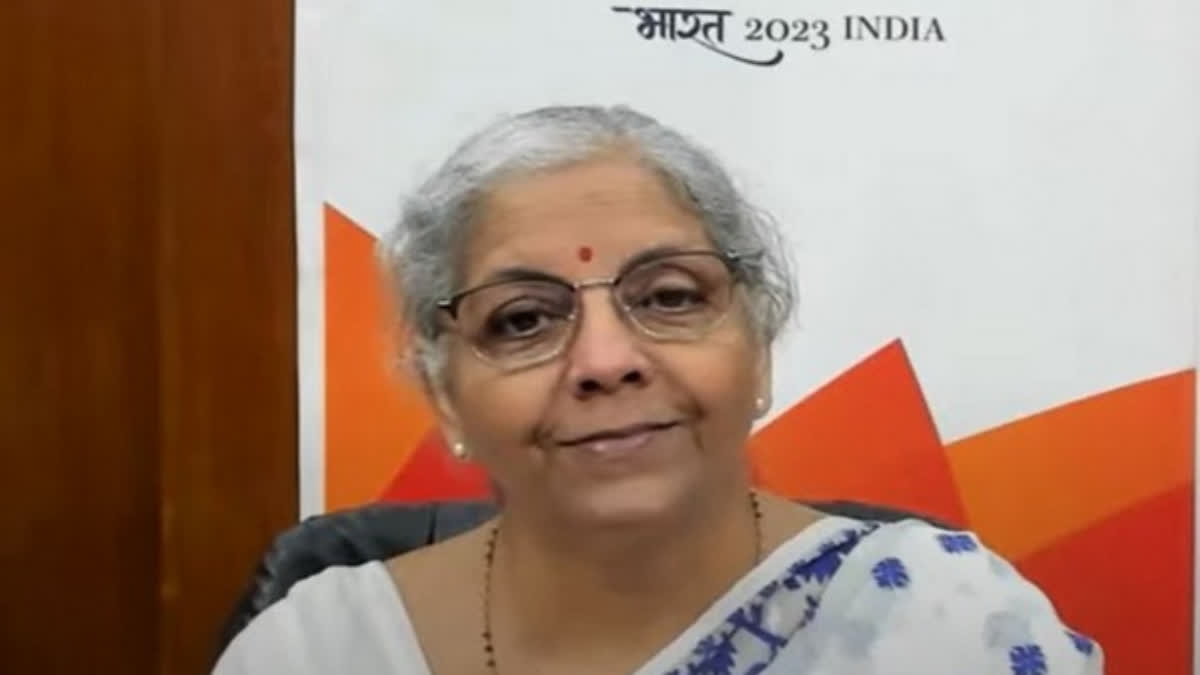New Delhi: In a significant address at the B20 Summit, Finance Minister Nirmala Sitharaman underscored the Indian government's unwavering commitment to economic reforms over the past nine years, resulting in a marked departure from the previously erratic approach. Sitharaman asserted that even the unprecedented challenges posed by the COVID-19 pandemic failed to deter the government from its reformist agenda.
Highlighting the nation's impressive economic growth, Sitharaman proudly declared India as the fastest-growing economy, while emphasizing the resilience of domestic investment. The eagerly awaited Q1 GDP data for the fiscal year 2023-24 is poised to unveil a promising economic trajectory, according to the Finance Minister, echoing the optimistic sentiments pervading various quarters.
"We are the fastest-growing economy and our domestic investment is robust. The Q1 GDP data for FY23-24 will come soon. Nobody has a clue, but everybody feels the Q1 numbers went well, so everything should be good," Sitharaman said.
Sitharaman drew a sharp contrast between the historical pattern of sporadic reforms yielding unpredictable outcomes and the consistent and deliberate approach adopted over the last nine years. She emphasized that the prevailing pandemic, far from derailing reforms, was viewed as an opportunity to further strengthen the economic landscape.
Reflecting on the global upheaval caused by the pandemic, Sitharaman underscored the pivotal role of investments in healthcare and education as national priorities. She contended that this agenda held universal significance, particularly in light of health systems collapsing even in developed nations. The Finance Minister cautioned that neglecting these crucial sectors could precipitate a dire healthcare crisis.
"This should be the priority, globally. Health systems are collapsing even in developed countries. If money is not invested, we'll be in a health crisis," Sitharaman said.
Addressing the issue of inflation control and government revenue augmentation, Sitharaman highlighted the government's commitment to stable policies. She dismissed the notion of revenue generation through indiscriminate tax hikes, instead advocating for a balanced approach that considers growth alongside inflation management.
In a notable departure from conventional wisdom, Sitharaman criticized the excessive reliance on interest rate hikes as a standalone tool for inflation containment. She stressed that this approach neglects the importance of supply-side management, thereby falling short of a comprehensive solution. Sitharaman urged central banks to harmonize growth objectives with inflation control efforts, a nuanced perspective on economic management.
Despite Sitharaman's perspective, the Reserve Bank of India (RBI) embarked on a series of six consecutive rate hikes, cumulatively amounting to 250 basis points from May 2022 to April of the current year, finally culminating in a pause.
The B20 Summit, a three-day event, kicked off as a platform for global business dialogue. Established in 2010, the Business 20 forum serves as a representative voice for the international business community within the larger G20 framework. The upcoming G20 Summit, scheduled for next month, will likely delve further into the themes touched upon during the B20 Summit.



